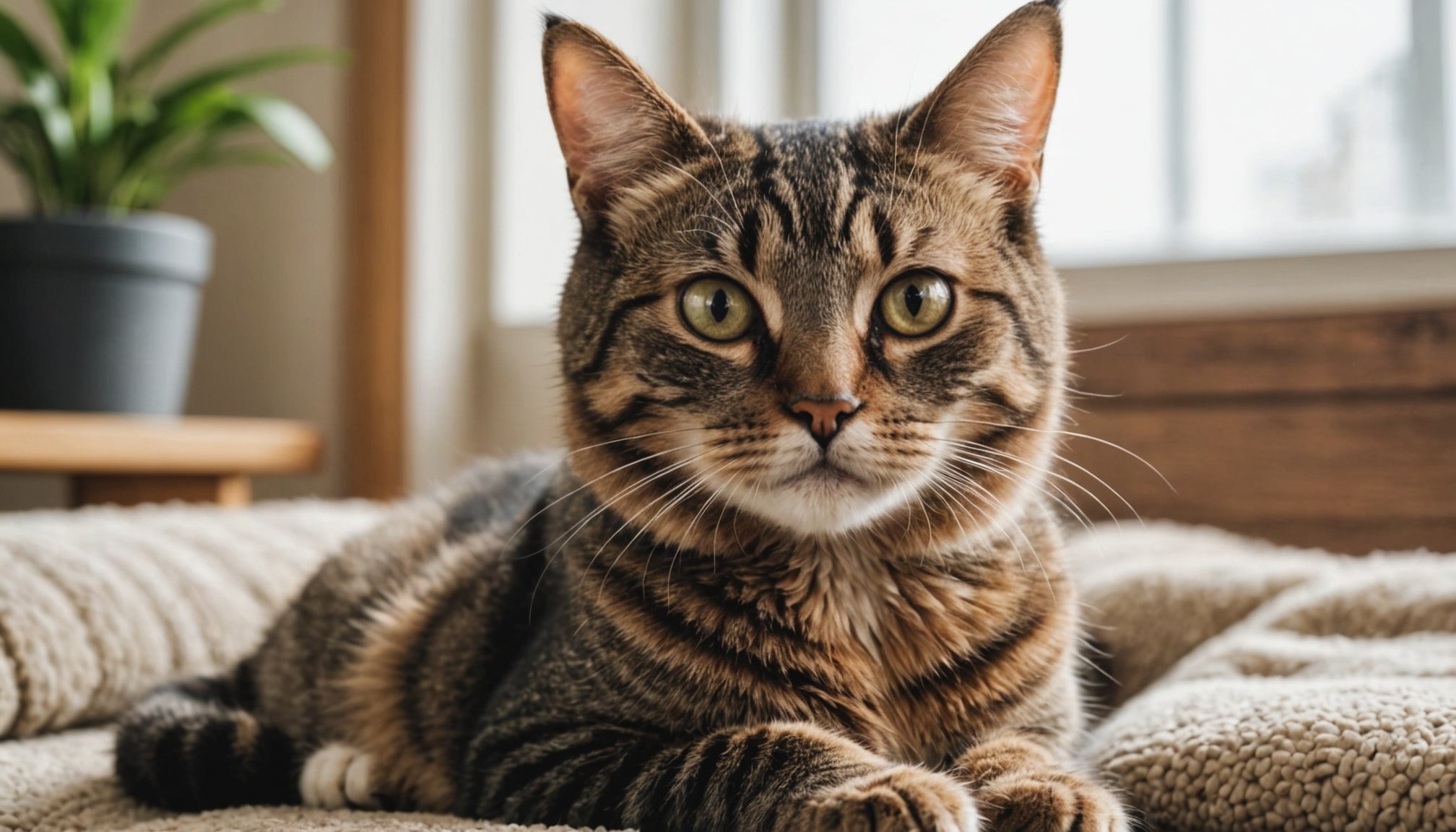As cats age, their mental health can be as crucial as their physical well-being. You might find that your once playful and curious feline becomes less active and more reclusive with time. This shift can lead to various mental health issues, including anxiety, depression, and cognitive decline. The good news is that there are several proactive steps that you can take to help maintain your cat’s mental health as they age. This guide explores strategies, insights, and tips that will keep your beloved companion engaged and happy.
Understanding Your Cat’s Mental Health Needs
You must recognize that your cat’s mental health needs evolve just like their physical health. Aging cats may face unique challenges such as reduced sensory perception, slower cognitive processing, and changes in their social behavior. Understanding these shifts is key to providing the right support.
Also to read : How can I identify and address behavioral issues related to litter box avoidance?
Cats are creatures of habit, and any abrupt changes in their environment can lead to stress. For instance, moving to a new home, introducing new pets, or even changes in your daily routine can disrupt your cat’s sense of security. To help them adjust, maintain a consistent environment where they feel safe and comfortable.
Moreover, mental stimulation is crucial. Engaging your cat’s mind can stave off boredom and reduce anxiety. Simple activities like interactive play with toys, puzzle feeders, or even training sessions can provide the necessary mental exercise your aging cat needs. Keep in mind that each cat is unique, so pay close attention to what activities they enjoy most and tailor their engagement accordingly.
Topic to read : How can I monitor my cat’s weight effectively to prevent obesity?
Creating a Stimulating Environment for Your Cat
An enriching environment is vital for your aging cat’s mental health. Start by providing various forms of stimulation that cater to their natural instincts. Cats are hunters by nature, and satisfying this instinct can keep their minds sharp.
You can invest in toys that encourage hunting behavior, such as feather wands, laser pointers, or treat-dispensing balls. These toys should encourage them to engage physically and mentally. Additionally, consider incorporating vertical spaces like cat trees or shelves. Cats feel more secure when they can observe their surroundings from a height, and such structures can provide them with a great vantage point to watch the world go by.
Incorporating scratching posts is equally essential. Not only do these help keep their claws healthy, but they also provide an outlet for stress and can prevent destructive behavior. Ensure that these enriching items are placed in areas where your cat spends most of their time.
You might also consider rotating toys and activities to keep things fresh. Just as humans can become bored with the same routine, so can your cat. By introducing new toys or changing their environment every few weeks, you can maintain their interest and prevent mental stagnation.
The Importance of Routine and Interaction
Establishing a routine is another significant aspect of maintaining your cat’s mental health. Cats thrive on predictability, and a consistent daily schedule can offer them a sense of security. This routine should include regular feeding times, play sessions, and cuddle time. By maintaining a steady timetable, your cat will feel more grounded and at ease.
Interaction with you also plays a crucial role in their emotional well-being. Make time for regular engagement with your cat, whether through play, grooming, or simply sitting together. These interactions can strengthen your bond and provide comfort during their golden years. You might be surprised at how much a little attention can brighten your cat’s day.
It is also essential to be vigilant about behavioral changes as they can be indicators of mental health issues. If you notice signs of distress, such as excessive vocalization, hiding, or changes in eating habits, consider consulting your veterinarian. They can help rule out any underlying health issues and provide additional strategies to improve your cat’s quality of life. Remember that your attentiveness is key to identifying and addressing your cat’s needs.
Nutrition’s Role in Mental Health
Nutrition plays a crucial part in your cat’s overall well-being, including mental health. As your cat ages, their dietary needs may change. Feeding them a well-balanced, high-quality diet can positively impact their cognitive function and mood.
Consider consulting your veterinarian to ensure that your cat receives the appropriate nutrients for their age. Omega-3 fatty acids, antioxidants, and specific vitamins can support brain health and combat age-related cognitive decline. Many commercial cat foods cater specifically to senior cats, emphasizing the nutrients they need most.
In addition to their regular diet, consider incorporating treats that promote cognitive health. There are specialized supplements and treats formulated to support brain function and mental clarity in aging cats. However, moderation is key—too many treats can lead to obesity, which can worsen health problems.
Hydration is equally essential. Ensure that your cat has access to fresh, clean water at all times. Some aging cats may have problems with their kidneys, and encouraging them to drink can help maintain their health. You could also experiment with fountain-style water dispensers, as many cats prefer running water and will drink more from these than from a bowl.
Addressing Health Issues and Their Impact on Mental Health
As your cat ages, they may face various health issues that can significantly impact their mental well-being. Common problems include arthritis, dental disease, and kidney disease, all of which can affect their behavior and overall mood.
If your cat starts exhibiting signs of discomfort, such as reluctance to jump or groom themselves, it is crucial to take them to the veterinarian for evaluation. Pain management can greatly enhance your cat’s quality of life and mental state. Regular check-ups can help catch these issues early, allowing you to intervene promptly and minimize their effects.
Moreover, behavioral changes can sometimes be misinterpreted as personality shifts instead of symptoms of underlying health conditions. For instance, if your normally affectionate cat becomes withdrawn, it may be due to discomfort or pain rather than a change in temperament. Understanding this distinction can guide you in addressing the root causes effectively.
Additionally, consider environmental adaptations to accommodate their health needs. For example, provide soft bedding for comfort, easy access to litter boxes, and ramps for easier navigation around the house. These small adjustments can significantly enhance your cat’s comfort and reduce stress, ultimately supporting better mental health.
Maintaining your cat’s mental health as they age is a multifaceted approach that requires attention, understanding, and dedication. By creating a stimulating environment, establishing a routine, ensuring proper nutrition, and addressing health concerns, you can significantly enhance their quality of life. Remember that your feline companion relies on you to make their later years as fulfilling and comfortable as possible. Engage with them regularly, be observant of their needs, and adapt as necessary. With your support, your aging cat can continue to thrive both mentally and physically, enjoying all the love it has to offer.











